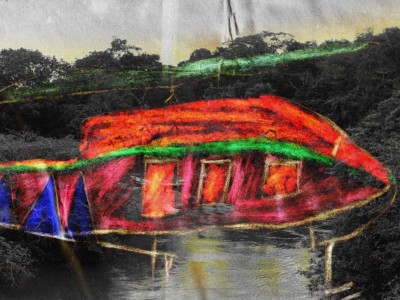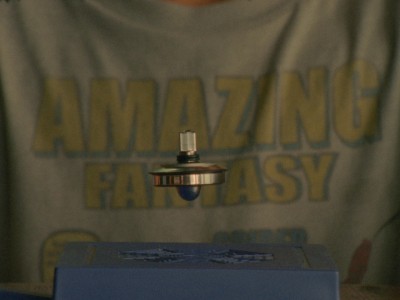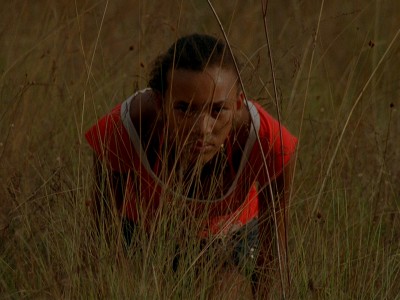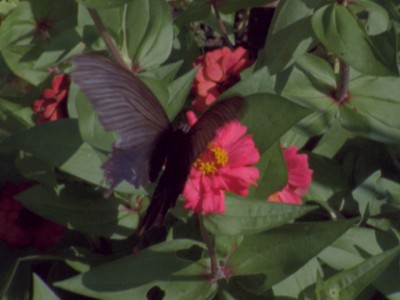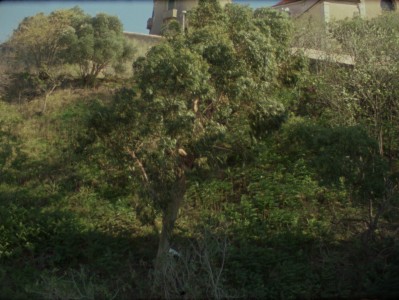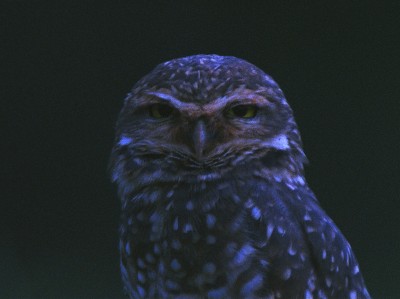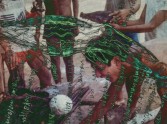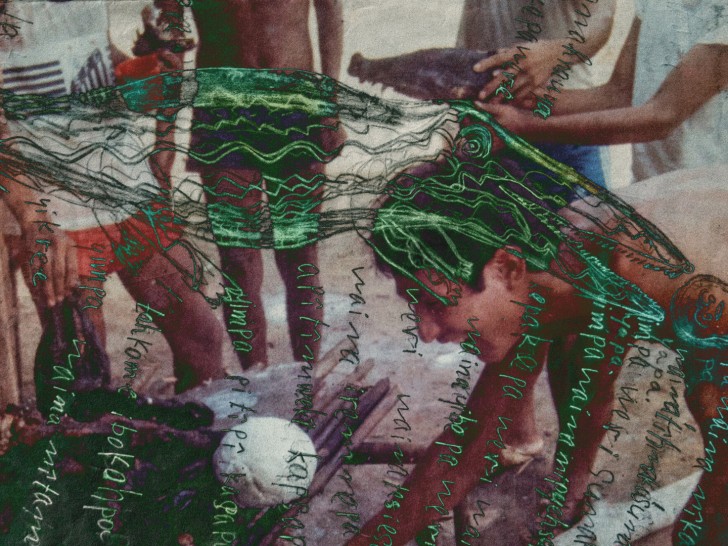
Ana Vaz Short Films
$15 Special Event Tickets
Ana Vaz renders in graphic black and white Bruno Giorgi’s modernist sculpture Os Candangos in the concrete expanse of central Brasília. In this film, the iconic figures now appear as symbols of the colonial takeover that occurred with the development of Brasília, a utopian vision that negated the existence of the lives and land already there. Vaz’s film gradually reveals dense layers of water, flora, fauna intertwined with the visions of the indigenous Waimiri-Atroari people, many of whom were killed with the construction of the BR-174 highway that also threads its way through her film. Through a collaboration with teacher, ecologist and indigenous rights activist Egydio Schwade, Vaz unearths part of an extensive archive of drawings that emerged from his literacy project with the Waimiri-Atroari many years after their near erasure. The superimposed drawings viscerally cut through and merge with the landscape, as if exposing the trauma imprinted on the land. Brought back into the cinematic consciousness, the silenced voices speak volumes in Vaz’s reanimation, ultimately asking one simple, anguished question.
While working on a larger project in the islands of Ogasawara, Japan, Vaz captured a boy’s mesmerizing performance. Part of the film’s bewitching spell comes from the simple enjoyment of physical magic, but as she explains, it is also “about desire for mastery and the impossibility of floating…”
As the title’s loaded refrain from Manoel de Oliveira’s Francisca (1981) echoes throughout Vaz’s freeform exploration, her feral camera moves furtively in the tall grasses of the Brazilian savanna with the young Ivonete. Vaz’s vision and Ivonete’s stories spiral around the indigenous relationship to the land versus the colonial approach: exploitation, displacement and genocide. Vaz drops into the cauldron contemporary footage of Brasília’s zoo and the 19th century ethnographic paintings of Goiás by German artist Johann Moritz Rugendas, among other images, and the furious cycle begins to feel like a rite, a ritual, a reclamation.
Within the gorgeous, hypnotic paroxysms of this flicker film resides evidence of the toxic and traumatic residue from the Fukushima nuclear disaster. The flowers are those of Aoki Sadako who was displaced from her home after the accident; she travels back to the contaminated zone to care for her garden. In between the toxic blooms are fireworks from the Bon Odori festival for the dead, though in Japan they also recall the only atomic bombs dropped on people. “What bothers me is that the film can be read superficially, as a beautiful film, because of the flowers,” acknowledges Vaz, “but my flowers are monstrous… For me Atomic Garden is a monster film, it is closer to Godzilla than Marie Menken.”
“A árvore is a ritual-film about my father— the artist, musician, and mystic of the forest—Guilherme Vaz, a man who lived and reflected on the frontier, on the fatal advance of modernity over the peoples of the earth, a man who wrote music instinctively, who thought of cinema as his ‘spiritual father’ and, above all, whose lived life was his greatest work.” As her father intones in the film, “We who live in the time of images, our lives are peopled with ghosts.” He himself appears in spectral form in this meditative homage, yet her father—who also contributed much of the music in her films—remains intimately, vitally intertwined with her life and her art. Their conversation in this film traverses artmaking and travel, including the time he spent with indigenous people in the State of Rondônia, Brazil, a place now victim to massive deforestation. The stoic entity of the title remains standing throughout all seasons, events and cycles of life, a witness and here, perhaps, the luminous representative of the dynamic, profound life force that pulses through creation.
